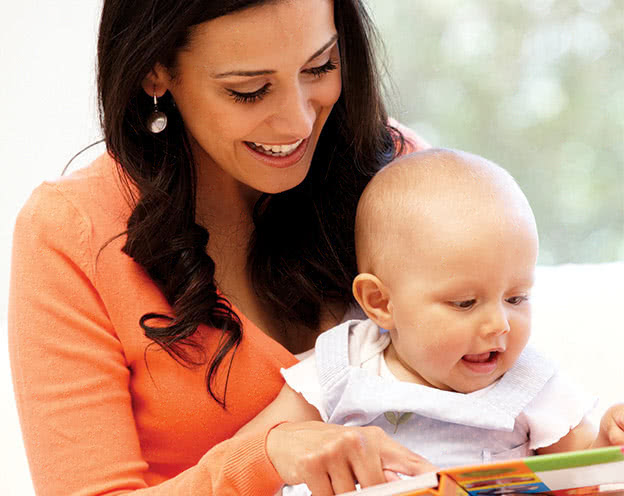
Section
Giving Your Baby the Best Start
Your baby’s brain grows faster in the first year than at any other time. Your baby is busy seeing, hearing, and feeling. These experiences will affect how she learns and feels about the world. As a parent, you can encourage your baby’s development.
Where to Find Help
Things You Can Do
Build Your Baby’s Brain with Play
Here are some ways to play with your baby.
When you feed your baby, talk about the food. Talk about the ways it tastes, feels, and looks. “The sweet potato is orange and soft!”
Point to the pictures, letters, and numbers in books. Ask questions. “What’s the bear doing?”
Sing during everyday activities like bath time or getting dressed. You can make up simple songs to describe what you are doing, like “We’re going for a ride ... we’re going to the store.”
Healthy Habits that Help with Stress
Serious stressful events do happen in most people’s lives. You can give your children skills and abilities that will help them bounce back when problems happen.
Make a daily routine. Have naps, meals, a story, and bedtime at the same time every day. This helps children feel secure.
Build strong relationships. Friends and a close, loving family can give you and your baby support when times are tough.
The First 3 Months
New studies show that the first 3 months are very important. This is the time to create a bond with your baby. You help her feel secure when you pick her up and care for her needs. Smile at her and talk to her when she babbles. This helps her learn to communicate with people.
Talk, Read, Sing
Most brain development happens in the first 3 years. Talk, read, and sing to your baby from her first hours. This helps you grow close and helps her brain develop. It also starts to build the skills that children need to do well in school and in life.

Try to take parental leave. It is a great time to talk, sing, and read with your baby.
Stress and Your Child
Ongoing problems can harm a child’s emotional and physical health. Problems like abuse, an addicted parent, or homelessness can cause harm that lasts for many years. Here are some ways to help reduce these harmful effects:
To help your baby feel more secure, hold her, look at her face, and talk and smile at her.
Try to reduce the stress if you can. Use this guide to look for resources that can help.
You may be able to get home visits from someone trained to help you with parenting challenges. This is usually a nurse or other trained professional. Ask your baby’s doctor if your county offers home visits.